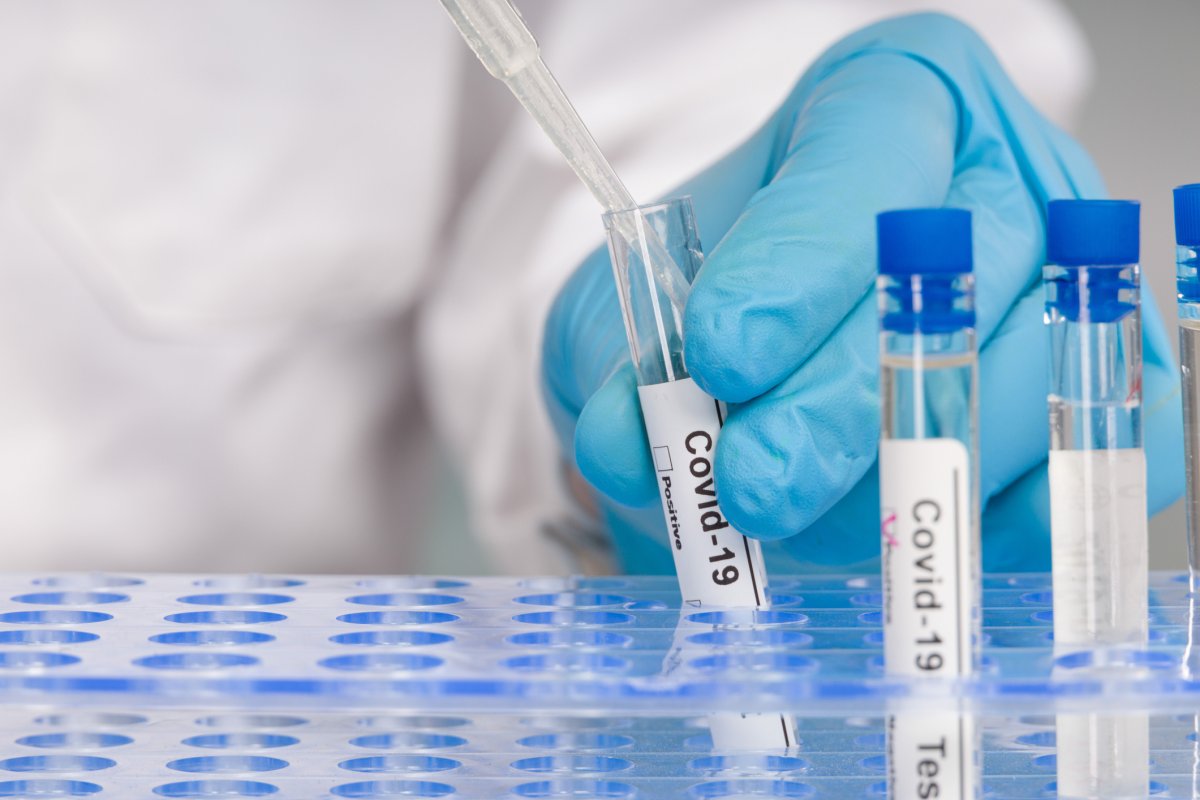Several virologists have dismissed reports of a new COVID variant dubbed "Deltacron" on the basis that it is likely to be a data error.
Reports of Deltacron first emerged last week after Bloomberg cited Leondios Kostrikis, a professor of biological sciences at the University of Cyprus, as having detected evidence of a variant that had Omicron-like features within its Delta variant genome.
Kostrikis said he and his team had found 25 cases of the virus and, defending his findings, said the samples had been processed in multiple sequencing procedures in more than one country.
He also said that the cases he identified "indicate an evolutionary pressure to an ancestral strain to acquire these mutations and [were] not a result of a single recombination event," in an emailed statement to Bloomberg. A recombination event is when mutations from different strains of a virus come together.
But virologists have told Newsweek they are certain the findings are in error. Krista Queen is director of viral genomics and surveillance at Louisiana State University Health Shreveport. She explained that the likely source of the error can be traced back to the sequencing technique used to identify the COVID samples that the Cyprus team had collected.
When researchers want to identify COVID variants, they have to sequence the genetic information of a virus sample since this genetic information differs between variants. To make this as efficient as possible, sequencing technology makes use of primers that amplify certain parts of the genome.
One particular sequencing protocol, known as ARTIC V3, is known to be unable to detect a specific part of the Delta genome, Queen said. This dropout area is called amplicon #72. Notably, it is in this location that the Omicron-like features of the "Deltacron" variant showed up.
Queen suspects that the Omicron-like features in the data were in fact the result of Omicron variant samples being present in the same plate the Cyprus team were using to sequence Delta.
"It's just so unlikely," Queen said. "Viruses are prone to recombination, and we actually saw it quite a bit with MERS Coronavirus. We haven't seen it with SARS-CoV-2. So it's not outside the realm of possibilities. But the fact that it happened right there in that one amplicon region just doesn't seem likely."
Queen added that later versions of the ARTIC sequencing protocol have been updated to avoid these drop-out zones that occur between variants.
Speaking to Newsweek, Jeremy Kamil, associate professor of microbiology and immunology also at Louisiana State University Health Shreveport, described the Deltacron finding as "100% a mistake—an innocent one of course. It's great [the Cyprus researchers] are doing genomic surveillance—the media if anything are just as responsible or more for generating alarm."
Doubt on the findings has come from elsewhere, too. Dr. Krutika Kuppalli, a member of the World Health Organization's COVID-19 Technical Team, tweeted on Sunday that "there is no such thing as Deltacron" and described the finding as likely the result of "lab contamination of Omicron fragments in a Delta specimen."
Okay people let’s make this a teachable moment, there is no such thing as #Deltacron (Just like there is no such thing as #Flurona) #Omicron and #Delta did NOT form a super variant
— Krutika Kuppalli, MD FIDSA (@KrutikaKuppalli) January 9, 2022
This is likely sequencing artifact (lab contamination of Omicron fragments in a Delta specimen) https://t.co/DDvM24bt9g
And, repeating the amplicon 72 theory, Thomas Peacock, a virologist at Imperial College London, tweeted: "Because amplicon 72 of Delta is very poorly picked up, any contamination, even at miniscule levels, will get preferentially amplified and you end up with hybrid sequences."
Because amplicon 72 of Delta is very poorly picked up, any contamination, even at miniscule levels, will get preferentially amplified (because PCR is an exponential process) and you end up with hybrid sequences.
— Tom Peacock (@PeacockFlu) January 9, 2022
Newsweek has contacted Kostrikis for comment.
Meanwhile, the highly infectious Omicron variant continues to cause disruption in the U.S. and elsewhere due to high numbers of COVID cases.
Update, 1/11/22, 2:25 a.m. ET: This article was updated to clarify that Jeremy Kamil spoke to Newsweek.
Correction, 1/11/22, 2:25 a.m. ET: This article was updated to correct the name of Louisiana State University Health Shreveport.

Uncommon Knowledge
Newsweek is committed to challenging conventional wisdom and finding connections in the search for common ground.
Newsweek is committed to challenging conventional wisdom and finding connections in the search for common ground.
About the writer
To read how Newsweek uses AI as a newsroom tool, Click here.








